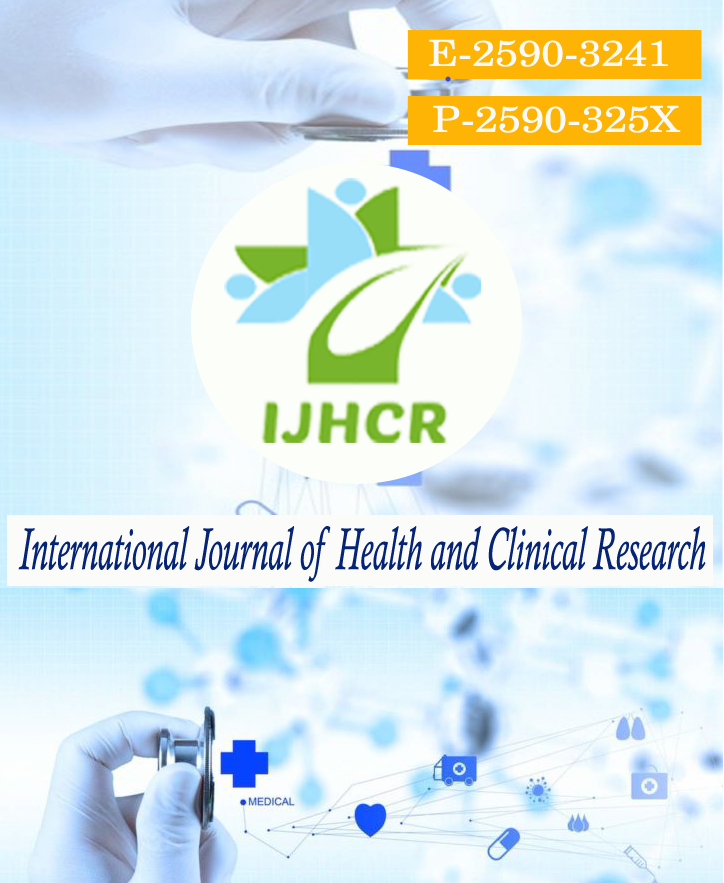
International Journal of Health and Clinical Research
Yazarlar: Chandan Kumar, Abhilasha Singh, Amit Kishor, Rituraj Lahkar, Abhishek Kamendu
Konular:-
Anahtar Kelimeler:Metabolic syndrome,Thyroid stimulating hormone,Hypothyroidism,Central obesity.
Özet: Aim: To evaluate the thyroid status in metabolic syndrome in comparison to healthy controls. To correlate the components of MetS with thyroid status.Material and methods: This was a cross-sectional study was done in the Department of General Medicine, Narayan Medical College and Hospital, Sasaram, Bihar, India, for 1 year. A total sample size of 100 (50 cases of metabolic syndrome matched with 50 controls) were included in the study. T3, T4 and TSH was analysed by chemiluminiscence assay in Access-2 hormone analyser. The biochemical assays were routinely monitored through internal and external quality programs. Results: The study population comprised of 56% male and 44% female among controls whereas cases had a slight female predominance with 58% being female and 42% being male. The mean age of the study population was 51.21±11.21 among cases and 48.36 ± 9.87 among controls. Difference of each of the component of Met S between the patients of Met S and control was tested using Student t-test. Significant difference with p value < .00001 was observed in each of the component of Met S between cases and controls. TSH showed significant difference (p= 0.02) with the mean TSH in cases group as 8.42 ± 3.12 and in control as 3.11 ± 0.42 whereas T3 and T4 showed no significant difference between both the groups shown in Table 2. Subclinical hypothyroidism (SCH) is the predominant pattern of thyroid dysfunction observed in 24 % of patients having Met S, followed by overt hypothyroidism in 6% as shown in while there where were no cases of overt hyperthyroidism. The correlation of TSH with the components of Met S was assessed using Pearson correlation coefficient. Waist circumference positively correlated with high TSH and was statistically significant (p = 0.02). Conclusion: The prevalence of TD in patients with Metabolic syndrome was high, indicating a possible interplay between thyroid status and MetS. Hypothyroidism was the most common TD in Indian patients with MetS.